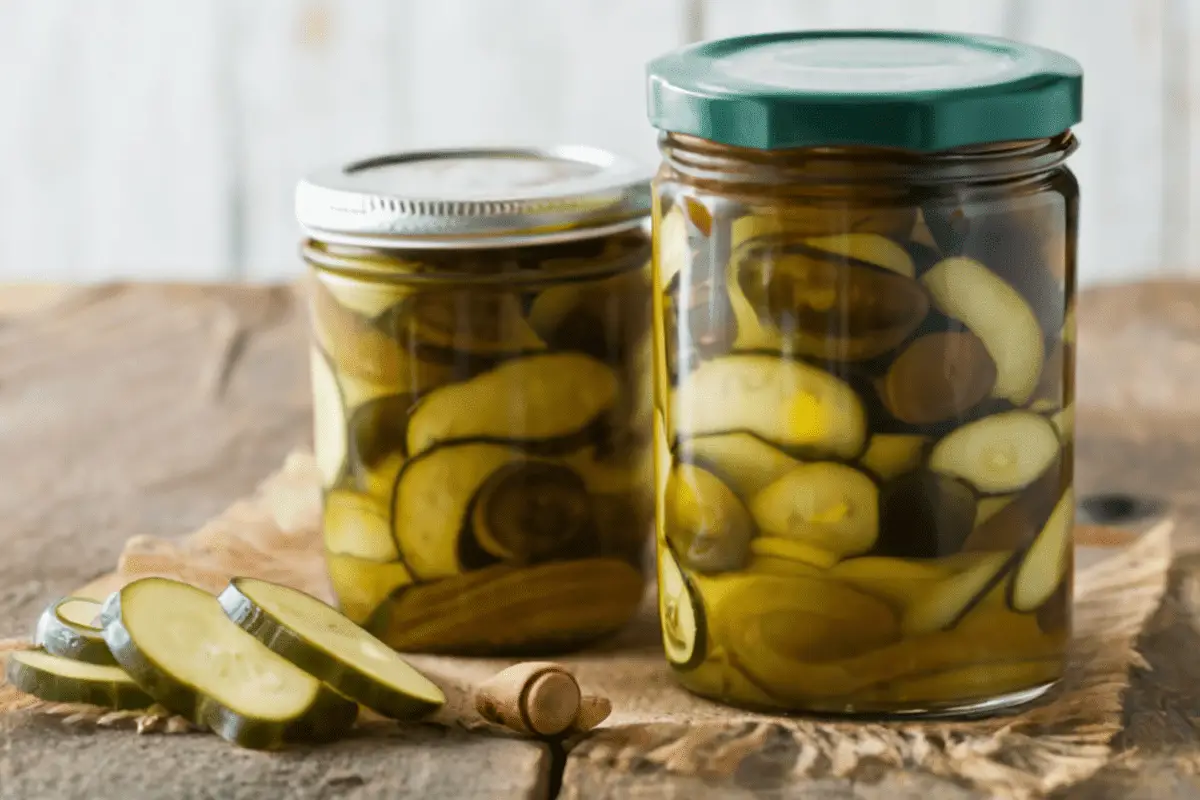Bread and butter pickles, known for their sweet and tangy flavor, are a beloved addition to sandwiches, burgers, and even enjoyed on their own. But are they really a healthy snack? This article breaks down their nutritional content, health benefits, and potential concerns to help you decide whether they fit into your diet.
Nutritional Breakdown of Bread and Butter Pickles
Bread and butter pickles typically provide:
- Calories: About 30 calories per serving
- Sodium: Approximately 300-400 mg per serving
- Sugar: 7-10 grams of added sugar per serving
- Vitamins: Significant amounts of Vitamin A and Vitamin K
While they are low in fat, their high sugar and sodium content are points to consider for health-conscious individuals.
Health Benefits of Bread and Butter Pickles
Despite the added sugar and sodium, bread and butter pickles offer some health benefits:
- Rich in vitamins: Particularly Vitamin A (for vision) and Vitamin K (for blood clotting).
- Potential probiotic benefits: If the pickles are fermented, they may support gut health through probiotics.
The fermentation process, commonly used for other types of pickles, can also be beneficial to your digestive system. For more information on the role of probiotics in pickles, check out this article on bread and butter pickles.
Are Bread and Butter Pickles a Good Choice for Weight Loss?
When it comes to weight loss, bread and butter pickles offer both pros and cons. On the plus side:
- They are low in calories, making them a potentially satisfying snack that won’t break your calorie budget.
- Their sweet flavor can help curb cravings for higher-calorie treats.
However, the high sugar content may not make them the best choice if you’re on a low-sugar diet. If you’re curious about making your own pickles, try reading this guide to learn more about the origins and alternatives to traditional bread and butter pickles.
Health Concerns: Sodium and Sugar
One of the main concerns with bread and butter pickles is their sodium content, which can lead to high blood pressure. Excessive sugar can also lead to weight gain and increase the risk of conditions such as diabetes. Here’s why you should be cautious:
- High sodium: Excessive intake can raise blood pressure and increase your risk of heart disease.
- High sugar: This can lead to weight gain and impact blood sugar levels.
To learn more about how to manage these health risks, you can explore alternative names for bread and butter pickles and explore healthier alternatives.
How to Incorporate Bread and Butter Pickles Into a Healthy Diet
For those who enjoy bread and butter pickles, moderation is key. Here are some tips to include them in a healthier way:
- Limit portions: Due to their high sodium and sugar content, keeping portions small is essential.
- Pair with healthier foods: Use pickles as a topping for lean proteins like chicken or turkey to add flavor without extra calories.
- Opt for lower-sodium or sugar-free versions: Many brands now offer reduced sodium or sugar-free pickles for a healthier option.
Homemade vs. Store-bought Pickles
Making your own homemade pickles is a great way to control the ingredients and reduce the sugar and salt content. Some benefits of making them yourself include:
- Customizable flavor: You can tweak the sweetness and saltiness to suit your taste.
- Healthier ingredients: Using natural preservatives like apple cider vinegar can make your pickles even healthier.
If you’re interested in learning how to make your own pickles at home, you can explore this recipe guide for bread and butter pickles.
FAQs
Are bread and butter pickles healthier than dill pickles?
Dill pickles typically have less sugar and fewer calories, but the sodium content remains high.
Can bread and butter pickles help with digestion?
Only if they are fermented, as this process produces probiotics which benefit digestion. However, not all bread and butter pickles are fermented.
Are there low-sodium options for bread and butter pickles?
Yes, some brands offer low-sodium varieties, making them a better choice for those watching their salt intake.
Can people with diabetes eat bread and butter pickles?
Due to the added sugar, it’s important to consume these pickles in moderation. Opting for sugar-free varieties is a better choice.
How often can I eat bread and butter pickles without health risks?
As with most foods, moderation is essential. Consuming them occasionally in small portions will minimize health risks.
Bread and butter pickles can be a delicious and satisfying snack when eaten in moderation. However, their high sodium and sugar content means they should not be consumed in large quantities. By making smarter choices, such as opting for low-sodium versions or making your own at home, you can enjoy them as part of a healthy, balanced diet.

